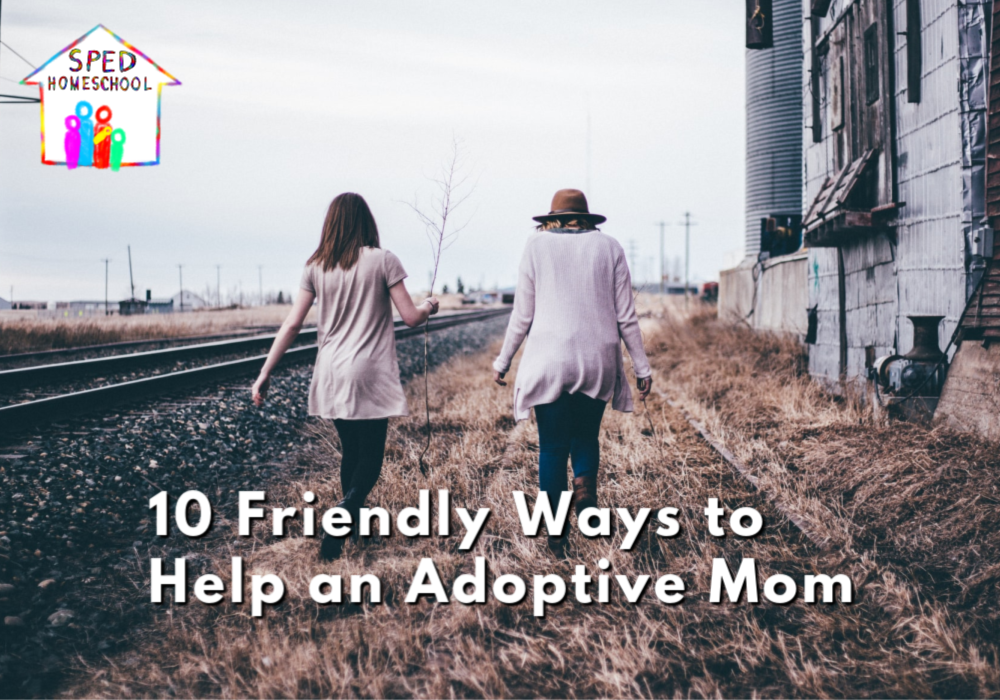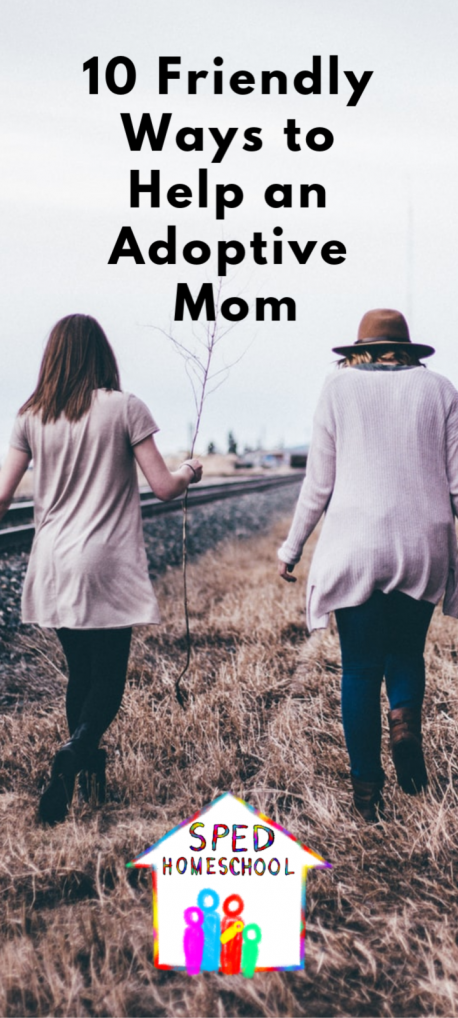
Peggy Ployhar
Last year while I was speaking at a homeschool conference I off-handedly mentioned that I was the oldest of 14 and had 10 adopted siblings, something I occasionally mention, but after feeling a nudge from the Holy Spirit, I went with it.
After wrapping up my session I joined one of my session’s breakout discussion groups. Without knowing it, the group I joined had an adoptive mom. As we chatted in this group, this mom asked me, “What is the most difficult part of being an adoptive sibling?” Now you must understand, I don’t have the experience of having lived at home with my adopted siblings because they entered into our family after I was living on my own, but this doesn’t mean I haven’t wrestled with various aspects of being an adoptive sibling and the impact it has made on my extended family. In response, I told her about my greatest struggle, watching my mother’s health decline as she took care of all my adopted siblings yet did not prioritize self-care. In fact, it was not until my mother had a heart attack a few years ago that she even took this matter seriously.
After I responded, this woman looked at me with a rather concerned face and then told me this was the same issue she and her oldest biological daughter argued about most.
“…keep persisting and showing her how much you love her and her family by not giving up or letting her play down her need to be loved and cared for just as much as the children she pours her life into each and every day.“
Later on that day I was able to talk with this woman’s daughter and encourage her to help her mother find ways to take care of herself. I also reassured her that it was not selfish or ungodly for her to want her mom to stay as healthy as possible while taking care of her siblings.
From this perspective (and having been a foster mom myself for three toddlers for 13 months), I would like to share with you a few friendly ways to help the adoptive moms around you care for themselves, so in turn, they can be as healthy as possible to take care of the orphans God has brought into their homes.
- Stop by to drop off a special treat or gift, but be ready and willing to stay to visit or help in any way needed.
- Write a note of encouragement and be specific. Tell your friend what you have observed that she is doing and how it is making an impact.
- Bring over a dinner that can either be easily heated and served or quickly and conveniently frozen for future use. Flexibility, as well as keeping the dietary needs of the whole family in consideration, means your meal won’t go to waste.
- Offer to help watch the kids. One caveat on this suggestion is that oftentimes foster children can only be watched by “approved” caregivers. If this is the case, and you still want to help, it is often okay for an individual to watch the children while the foster parents are on the property. So, let mom take a nap, do something she enjoys by herself in another room, or give mom and dad a date night in the dining room while you watch a movie and play games with the kids in another area of the house.
- Plan a weekend away for your friend by enlisting the help of her spouse or another caregiver who can take her place while she is gone. Don’t spill the beans until everything is planned, that way she can’t make an excuse for not getting away. Then enjoy treating your friend to some girl time.
- Be available to talk, but mostly be available to listen. You may not even know how to respond to the many situations your friend is going through, but your willingness to listen and speak truth and hope into her life as the Spirit leads will be greatly appreciated
- Take on the role of an accountability partner by asking your friend what goals she has and how you can be instrumental in helping her achieve them. For instance, maybe she has a fitness goal and going for a walk every evening together will help her get more exercise. If you don’t live close then consider how the two of you can connect on the phone or for a video chat regularly to catch up as well check-in.
- Be on call and go as far as making a reminder card your friend can put somewhere that will always remind her you are just a phone call away for anything she may need.
- Be transparent about your own failings. Parenting foster and adopted children reveal huge gaps in our own lives and relationships. The more you are willing to share your shortcomings with your friend, the more she will feel safe to do the same with you.
- Pray for your friend, her family, and her children. God does amazing things when we pray.
In the fall of 2017, I followed my own advice for #5 and planned a girl’s getaway trip to New York City. Before I even told my mom that I was going to kidnap her for 3 days to take her to NYC with me and my daughter, I made sure my dad was able to get the help he needed while she was gone, bought the airline tickets, booked our hotel, bought tickets to a Broadway show, and even planned a horse-drawn carriage ride through Central Park. I knew if I had told my mom ahead of time she didn’t need to get away and she especially would have told me not to go out of my way to plan anything extravagant. But, I wanted to spoil my mom for a few days so I made my plans before she could change them. Our three days in New York City were magical and she, my daughter and me created memories we will never forget.
You too may experience some resistance from your friend as you find ways to help her remember to take time for herself, but I want to encourage you to keep persisting and showing her how much you love her and her family by not giving up or letting her play down her need to be loved and cared for just as much as the children she pours her life into each and every day.
Did you benefit from this article?
Would you consider a small donation to support the ongoing work of SPED Homeschool?
Click Here to Donate Today

